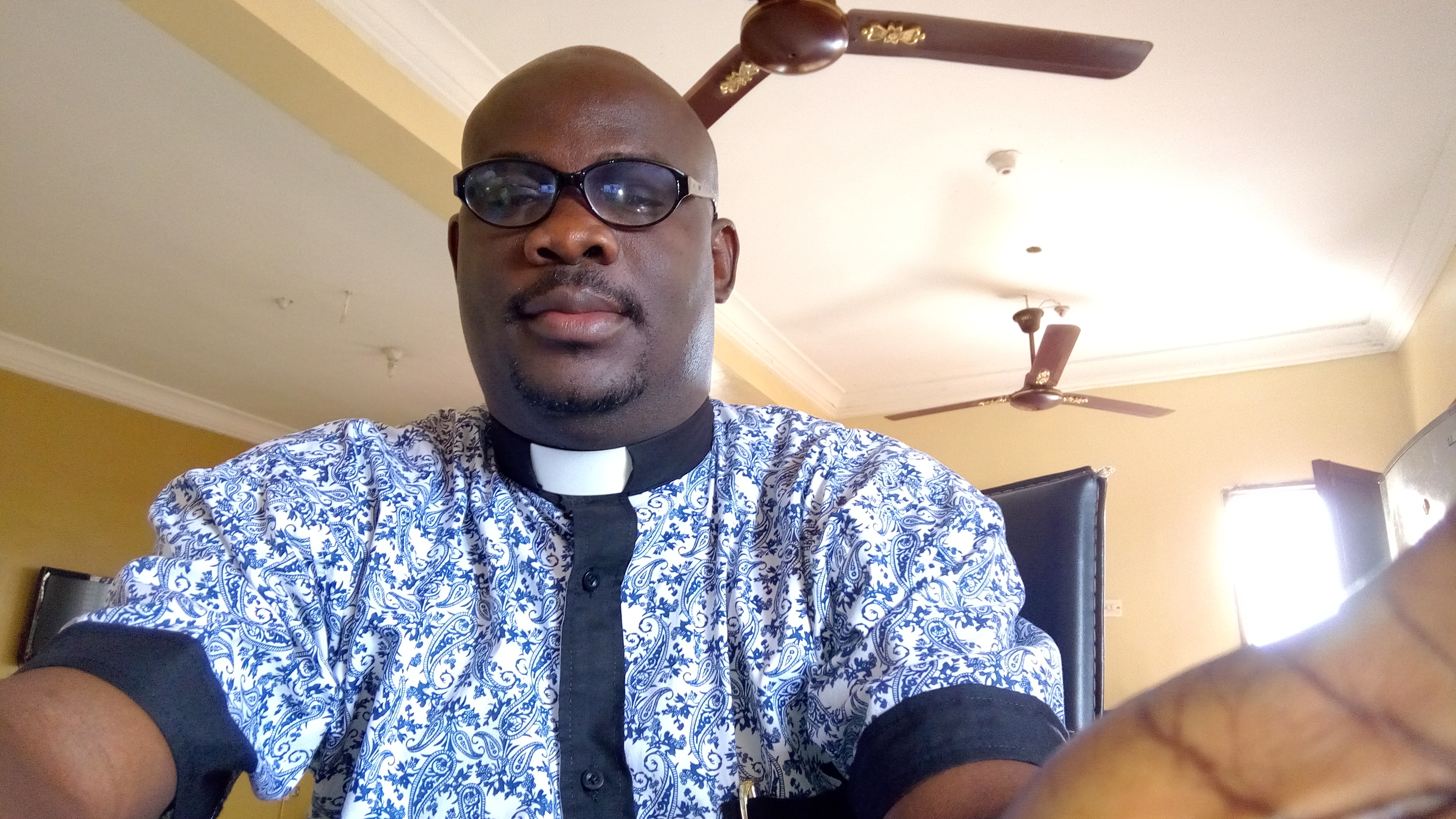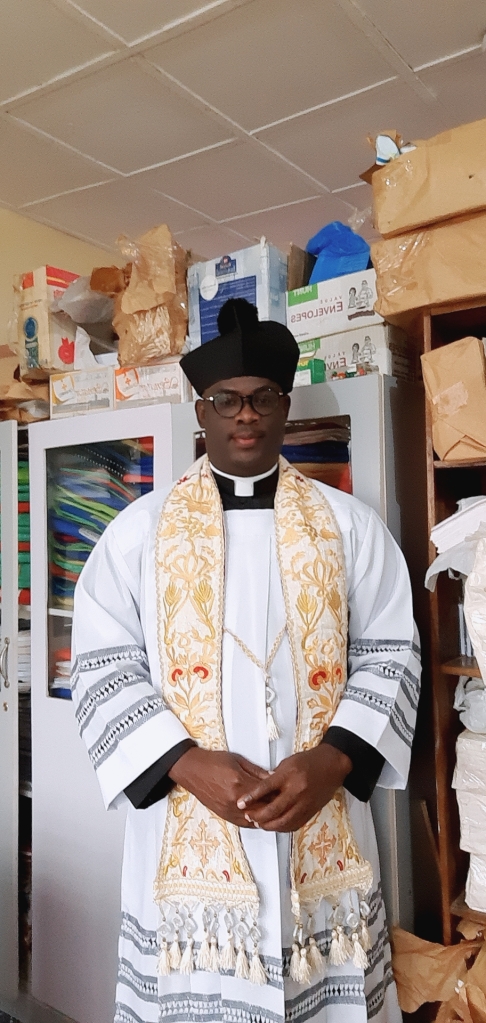A SUMMARY ON THE APOSTOLIC EXHORTATION: PASTORES DABO VOBIS
INTRODUCTION
In his introduction to the Apostolic Exhortation, Pastores Dabo Vobis, pope John Paul II maintains that without priests the church would not be able to live out the fundamental obedience which is at the very heart of her existence and her mission in the world. Moreover, this fundamental obedience is evangelical: go and make disciples of all nations (matt. 28:19) and do this in remembrance of me (Luke 22:10).
Nevertheless, he emphasizes the need for the church to propose to each new generation the vocational call, and help people to discern the authenticity of their call from God and respond to it generously and give care to the formation of the candidates for priesthood. Pope John Paul II considers the future formation of priests (whether diocesan or religious) and their personal sanctification in the ministry as the most demanding and important task for the church for the future evangelization of humanity.
SUMMARY
“I will give you shepherds after my own heart” (Jer. 3:15). In the formation of future priest, the pope identifies the need for openness to the Holy Spirit in order to discover the tendencies of the contemporary society, its deepest spiritual needs, and the most concrete task, and method to adopt in order to adequately respond human expectations.
Since priests are part of this contemporary society, aforementioned are to be included in their formation at various phases. Going further, the documents elaborate the contemporary challenges of modern priesthood to include consumerism, individualism, materialistic and hedonistic interpretation of human existence, and distortion of human sexuality and freedom.
Thus, search and longing for vocation to the ministerial priesthood is distant from the interested of the young. However, hope lies in the unfailing love of Christ, and our certainty that the priestly ministry in the life of the church and in the world knows no substitute.
Certainly, there is an essential aspect of priest that does not change: the priest of tomorrow, no less than the priest of today, must resemble Christ. When Jesus lived on this earth, he manifested in himself the definitive role of the priest, by establishing a ministerial priesthood, with which the apostle were the first to be invested. This priesthood is destined to last in the endless succession throughout history. In this sense, the priest of the third millennium will continue the work of the priest who, in the preceding millennia, has animated the life of the church. In the third millennium, the priestly vocation will continue to be the call to live the unique and permanent priesthood of Christ.
Nevertheless, while being taken from amongst men and appointed for men in the things that appertain to God that they may offer gifts and sacrifices for sins, live with the rest of men as with brothers. So also, the Lord Jesus Christ the son of God, a man sent by the father to men, dwelt amongst us and willed to made like to his brothers in all things save only sin. The priests of the New Testament are, it is true, by their vocation to ordination, set apart in some way in the midst of the people of God, but this is not in order that they should be separated from that people or from any man, but that they should be completely consecrated to the task for which God chooses them. They should not be the servant of Christ unless they were witnesses and dispensers of a life other than that of this earth.
The many contradiction and potentialities marking our societies and cultures, as well as ecclesial communities, are perceived, lived and experienced by our young people with a particular intensity and have immediate and very acute repercussions on their personal growth. Thus, the emergence and development of priestly vocations among boys, adolescents and young men are continually under pressure and facing obstacles.
The dignity of the human person is rooted in his creation in the image and likeness of God. It is fulfilled in his vocation to divine beatitude. It is essential to a human being freely to direct himself to his fulfillment. By this deliberate action, the human person does, or does not, conform to the good promise by God and attested by moral conscience. Human beings make their own contribution to their interior growth; they make their completely sentient and spiritual lives into means of this growth.
Christ, in the very revelation of the mystery of the Father and of his love, makes man fully manifest to himself and brings to life his exulted vocation. It is in Christ, the image of the invisible God, that man has been created in the image and likeness of the creator.
Often the world of young people is a ‘problem’ in the church community itself. In fact, if in them; more so than in adults; there is present a strong tendency to subjectivize the Christian faith and to belong only partially and conditionally to the life and mission of the church, and if the church community is slow for a variety of reasons to initiate and up-to-date and courageous pastoral care for young people, the risk being left to themselves, at the mercy of their psychological frailty, dissatisfied and critical of a world of adults who, in failing to live the faith in a consistent and mature fashion, do not appear to them as credible models.
Moreover, in this way the church feels that she can face the difficulties and challenges of this new period of history and can also provide, in the present and in the future, priests who are well trained to be convinced and fervent ministers of the “new evangelization”, faithful and generous servants of Jesus Christ and of the human family. We are not unmindful of difficulties in this regard; they are neither few nor insignificant.
CONCLUSION
“I will give you shepherds after my own heart” (Jer. 3:15). This short verse of the bible has shown that God has a great plan for his people and his ministers, who are called to minister to the people. The Church, the people of God, constantly experiences the reality of this prophetic massage and continues joyfully to thank God for it. She that Jesus Christ is the living, supreme and definitive fulfillment of God’s promise: “I am the good shepherd” (Jn. 10:20). He the great shepherd of the sheep, entrusted to the apostle and their successors the ministry of shepherding God’s flock.
Perhaps, without priests the church would not be able to live the fundamental obedience which is at the very heart of her existence and her mission in history, an obedience in response to the command of Christ: “Go therefore and make disciples of all nation” (Mt. 28:19) and “Do this in remembrance of me” (Lk 22:19; 1 Cor 11:24).
Moreover, every aspect of priestly formation can be referred to Mary, the human being who has responded better than any other has to God’s call. Mary became both the servant and the disciple of the Word the point of conceiving, in her heart and in her flesh, the Word made man, so as to give him to mankind.
Fr Lawrence Sdv



